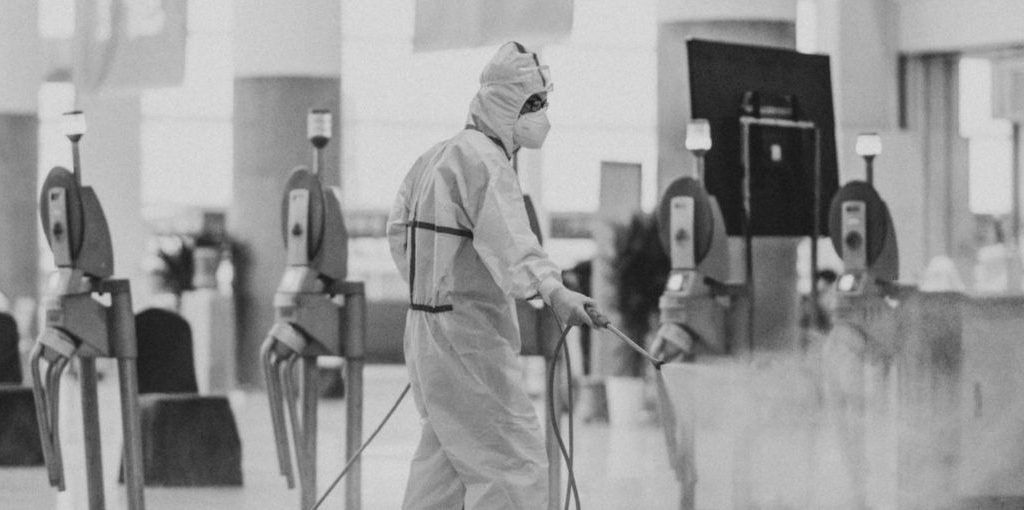Leveraging Cooperative Procurement during COVID-19 Crisis
Cooperative procurement is proving to be a vital resource during the COVID-19 pandemic. With the growing adoption of this contracting methodology over the past decade, the National Cooperative Procurement Partners (NCPP) Association was formed to offer educational content to support procurement teams in creating a cooperative procurement strategy for their agency. Recently, NCPP sponsored a special webinar to answer key questions for procurement teams in leveraging the use of cooperative contracts to address the current crisis.
How is COVID-19 different than past emergencies across the nation?
Dr. Kim Abrego from Disaster Recovery Services and an expert in FEMA requirements, stated, “COVID-19 is quite different to any declared event that FEMA has seen to-date for a number of reasons. First, this is a national emergency, so instead of having to support the financial recovery of public entities in a localized region, FEMA is now supporting efforts across the nation. Second, with social distancing measures in place, FEMA is not able to deploy their usual field support team to actively engage with applicants at their locations. And third, this disaster is not tied to any physical damage which is how the FEMA program delivery model was originally designed. As a result, FEMA is shifting its program to an online model.”
Does FEMA allow the use of cooperative contracts?
FEMA allows the use of cooperative contracts during an emergency within specific parameters, and defines a cooperative purchasing program as “a cooperative arrangement for acquiring goods or services that involves aggregating the demand of two or more entities in an effort to obtain a more economical purchase.” The most current FEMA Fact Sheet entitled PUBLIC ASSISTANCE: PURCHASING GOODS OR SERVICES THROUGH COOPERATIVE PURCHASING PROGRAMS (dated Sept 2018) offers additional guidance.
What are key steps to take in using a cooperative agreement while still being eligible for FEMA reimbursement for COVID-19?
“It is important to note that not all cooperative contracts are created equal,” states Tammy Rimes, Executive Director for NCPP, and a former Purchasing Agent and long-time government manager. “During my experience working for the City of San Diego during the fires of 2007, our team had to vet a cooperative’s procurement process against FEMA’s requirements.” Dr. Kim Abrego adds further direction by suggesting these due diligence questions, “was an independent estimate done prior to soliciting bids, is there documentation to support full and open competition, were FEMA contract provisions included, and were affirmative steps taken to actively include MBE/WBEs? This is not to say that a cooperative agreement cannot be used if it doesn’t check all of the boxes, however there may be extra steps your organization will need to address any gaps in the FEMA requirements, to ensure a fully supported procurement file.”
What is a key benefit to using a cooperative contract during this emergency?
Ensuring best value is a difficult challenge during this pandemic, with competing requests, limited resources, and worldwide demand for the same products. Using an already solicited and awarded cooperative contract offers an additional distinct advantage of having established pricing that does not change, to prevent price gouging and inflated costs. For example, the contract price that was established upon contract award for a specific commodity – such as masks, vPPE, or cleaning products – is the same before, during and after the emergency.
How can a cooperative organization help procurement teams?
Many cooperative organizations have established dedicated COVID-19 website resources, contract listings and knowledgeable staff to support procurement teams. Chris Mellis, Senior Vice-President of Strategic Accounts with OMNIA Partners, notes that his organization has taken an even greater proactive approach to offer support to government employees, Mellis states “we are working closely with public agencies to understand immediate needs, as well as with our supplier partners to quickly identify solutions. Information is rapidly changing so we’ve established a COVID-19 Task Force and deployed a resource page on the OMNIA Partners website to provide public agencies with the most current information to support them during this challenging time.”





















